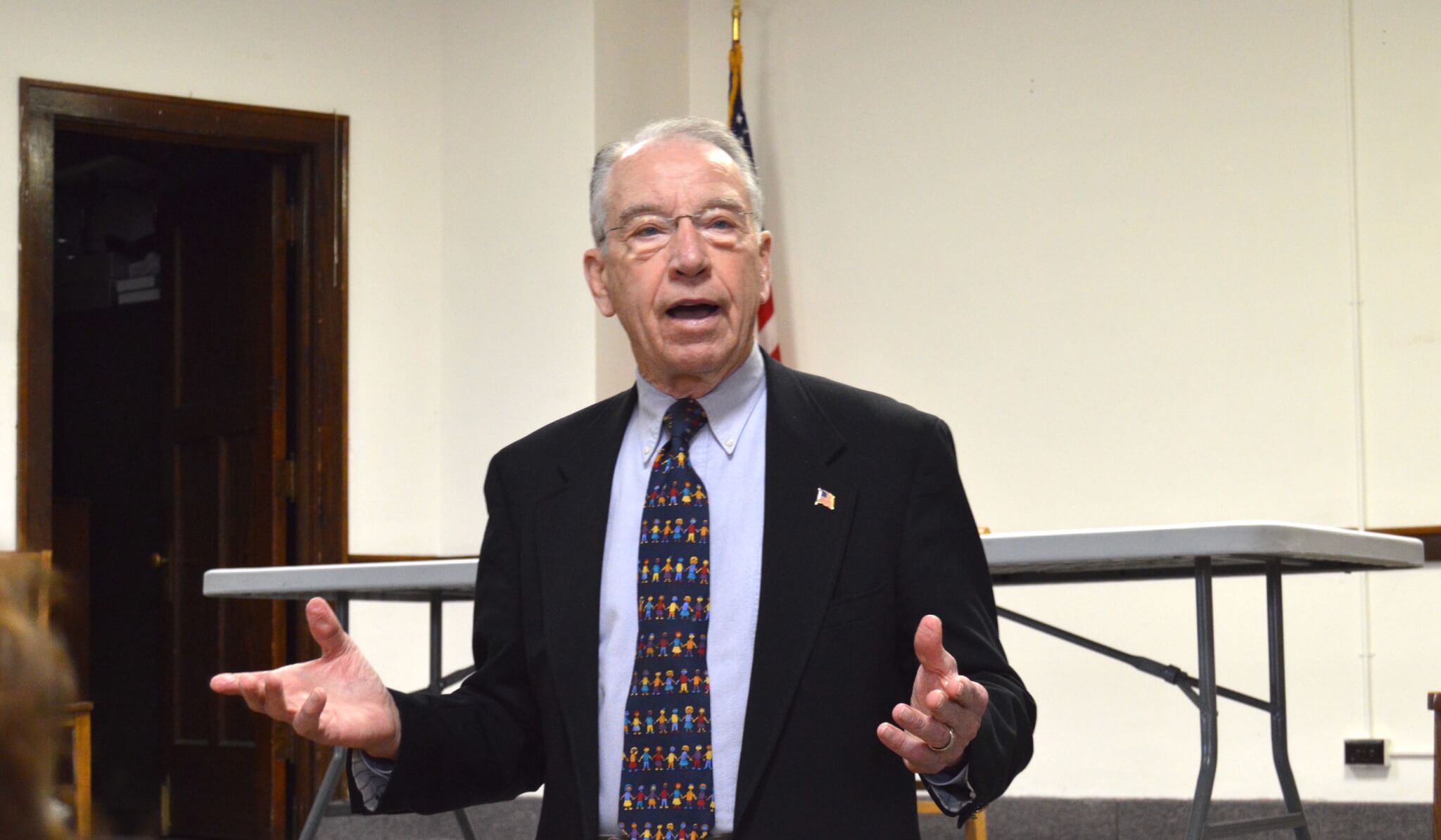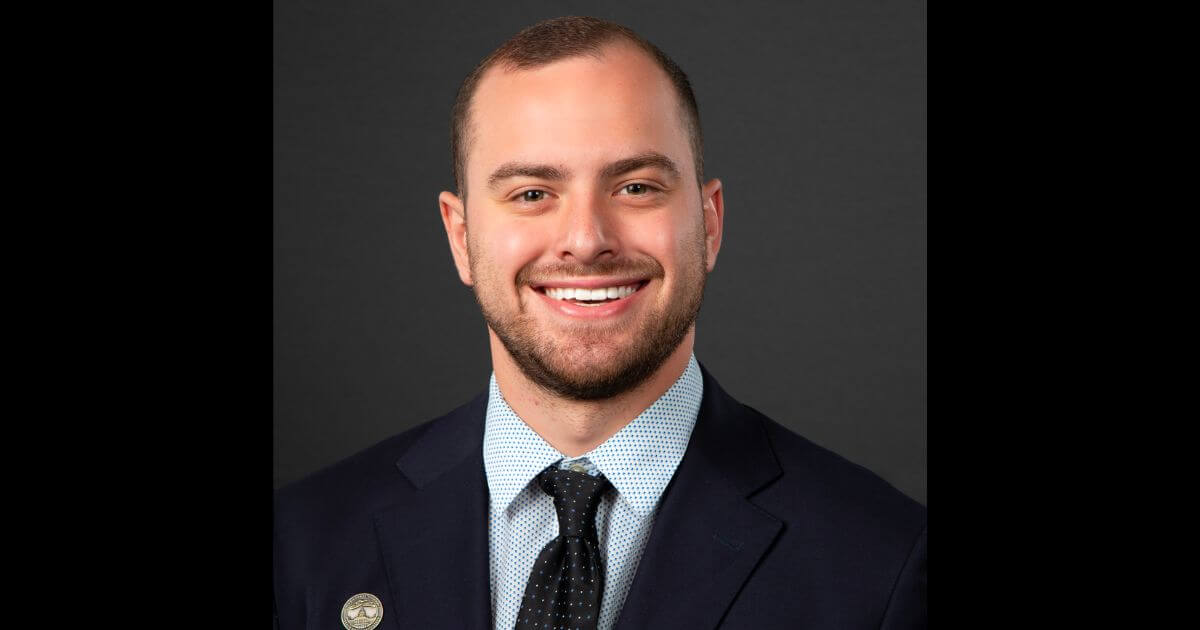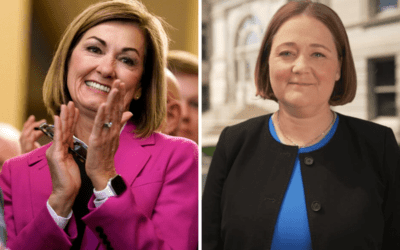
Iowa Sen. Chuck Grassley’s legislation to lower prescription drug costs passed his Senate Finance Committee over the summer with support from every Democrat on the committee.
Since then, the bipartisan bill has gone nowhere in Mitch McConnell’s Senate.
The latest public news on the “Prescription Drug Pricing Reduction Act” came Nov. 21 at the Committee for a Responsible Budget’s Summit on Health Care Savings. There, Grassley mentioned an “updated version” of the bill, telling the audience it will “improve the out-of-pocket cap by giving seniors and Americans with disabilities more flexibility when it comes to upfront costs” and “improve mechanisms to reduce what consumers pay out-of-pocket when they go to the pharmacy.”
In a press release, Grassley said the amended legislation would be released “in the coming weeks.”
He even said: “We hope these changes will help the bill garner the support we need to turn it into law this year.”
But a Sunday report in Politico suggests McConnell, the Senate Majority Leader, has no interest in bringing a prescription drug bill to the floor this year.
“It would depend on the White House asking him to do it at this point,” Grassley told Politico.
[inline-ad id=”1″]
Instead of debating and approving legislation, McConnell has displayed a near singular focus on one issue: judicial appointments. As of Dec. 2, McConnell has helped shepherd through 164 of President Donald Trump’s judicial nominees. Trump, who made the judiciary a signature issue of his 2016 campaign, has now appointed 25% of circuit court judges nationwide.
Other than government funding bills, the Kentucky senator has moved virtually no legislation through the upper chamber this year.
Republicans wary of Grassley’s prescription drug legislation spoke out in the July committee meeting against what they considered “price controls” on prescription drugs, a cost reduction tactic they viewed as anti-free market and potentially costly in the future.
[inline-ad id=”2″]
Key provisions of the bill include:
• Penalty for drug companies: The bill proposes a “price-hike penalty” for pharmaceutical companies if they raise the price of prescription drugs faster than the rate of inflation.
• Medicare Part D: The bill proposes putting a larger cost burden on insurers and pharmaceutical companies to bring down drug prices for patients; capping the out-of-pocket amount Americans pay for medication; and eliminating coverage “gaps” that increase costs.
• Medicare Part B: The bill proposes requiring “more complete and accurate reporting” so prescription drugs are priced accurately; de-incentivizing the prescription of high-cost drugs; and limiting the amount Medicare will cover so pharmaceutical companies are “forced to reevaluate what they charge.”
• Medicaid: The bill proposes allowing the program for poor and disabled Americans to pay for gene therapies for rare diseases and aims to prevent “price spreading and gaming” by Pharmacy Benefit Managers so patients, states and the federal government are fairly charged for Medicaid services.
In September, Trump tweeted about Grassley’s legislation, saying he liked it “very much.”
Because of my Administration, drug prices are down for the first time in almost 50 years — but the American people need Congress to help. I like Sen. Grassley’s drug pricing bill very much, and it’s great to see Speaker Pelosi’s bill today. Let’s get it done in a bipartisan way!
— Donald J. Trump (@realDonaldTrump) September 19, 2019
However, no reporting has indicated he will press McConnell to allow debate on a bill.
[inline-ad id=”0″]
Speaker of the House Nancy Pelosi unveiled her prescription drug bill this fall, but it too has failed to make it to the House floor.
For Americans with diabetes, access to insulin is a matter of life & death.
Yet surging prices make it hard for many to afford this necessity.
They deserve #LowerDrugCosts – and we can deliver by passing H.R. 3.
Learn more: https://t.co/P0b7HTnLYR#WorldDiabetesDay
— Nancy Pelosi (@SpeakerPelosi) November 14, 2019
Though the “Lower Drug Costs Now Act” is awaiting a vote, at the end of October, the Democrat-controlled House passed three health care bills to help bring down prescription drug costs, reauthorize funding for nursing programs and improve options for end of life care.
“In Iowa and across our nation, Americans are paying more and more for lifesaving medication — it’s an epidemic and we need transparency,” said Iowa Congresswoman Cindy Axne, in a press release about her support for legislation requiring pharmacy benefit managers [PBMs] report their year-end profits, as a way of holding the “middleman” accountable for its role in “skyrocketing drug costs.”
“By passing this legislation, we are shedding light on a system that has raised prices to increase their bottom line at the expense of hard-working Iowans,” Axne said.
For his part, Grassley acknowledged, in his November remarks at the Summit on Health Care Savings, the need for bipartisan effort across the federal government.
“It’s going to take hard work in both chambers of Congress and all corners of the Administration if we’re going to achieve truly affordable health care in America,” Grassley said.
By Elizabeth Meyer
Posted 12/2/19

Lanon Baccam wins 3rd District Dem primary, will face Zach Nunn
Baccam defeats Melissa Vine to challenge Republican incumbent Lanon Baccam defeated Melissa Vine in Tuesday’s Democratic primary for Iowa’s 3rd...

Hardin County man running for office as Trump-loving Democrat to local party’s dismay
Brad Rewoldt, who recently changed his party affiliation from Republican, says his support of Trump will probably 'piss off' Democrats There is a...

Scheetz: Tax cuts for all Iowans, not just the wealthy
State Rep. Sami Scheetz says all Iowans should benefit from tax cuts via a sales tax reduction As a state representative, my job is to serve the...

Kalbach: What Iowa Republicans focused on during legislative session
Our state legislative session finished up towards the end of April, and I’m glad it’s over! From further de-funding and privatizing our public...

Advocates file suit to stop Iowa’s ‘unconstitutional’ immigration law
Immigration advocates filed a federal lawsuit Thursday to stop Iowa’s new immigration law—SF 2340—from taking effect arguing that the legislation...

Iowa Republicans make outlawing gay marriage key 2024 campaign priority
Iowa Republicans have made outlawing gay marriage a key goal in their 2024 party platform. During the Iowa GOP’s 2024 state convention on Saturday,...




